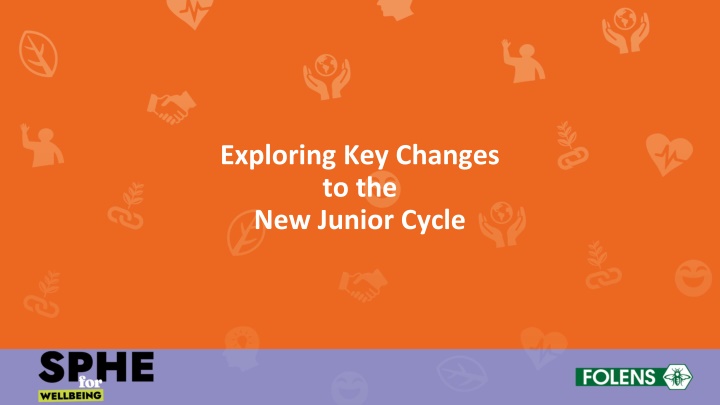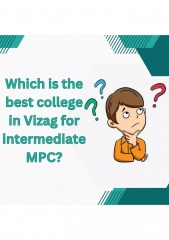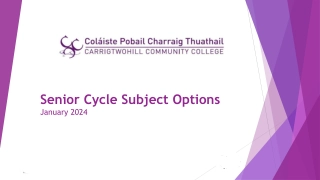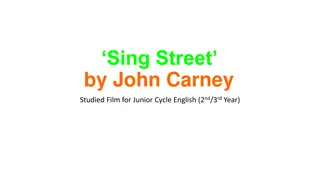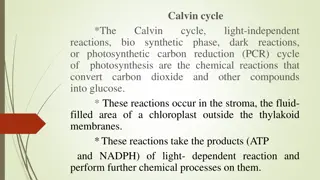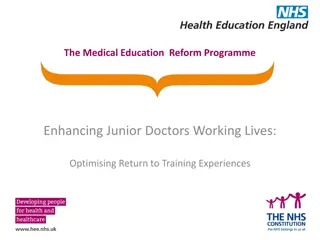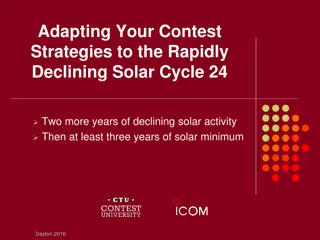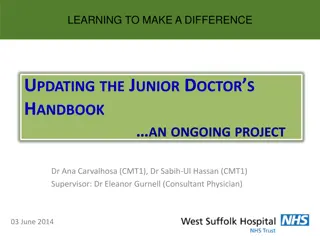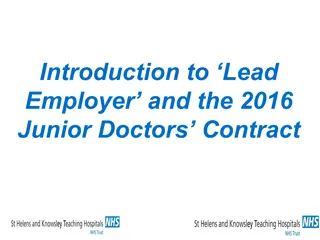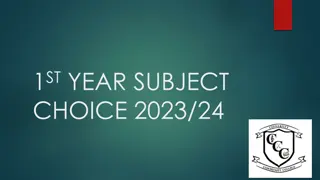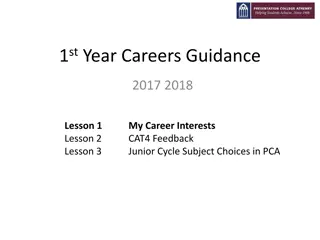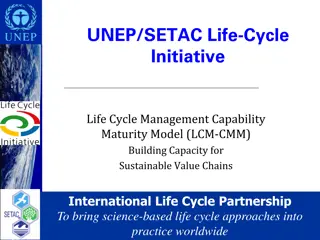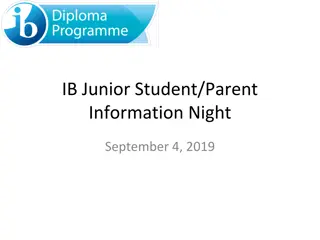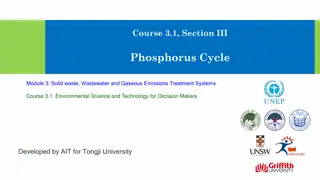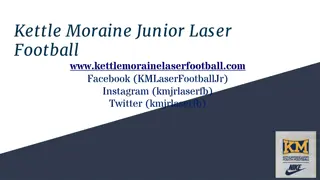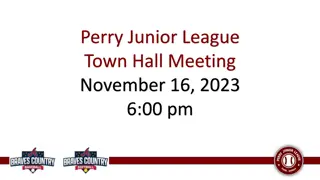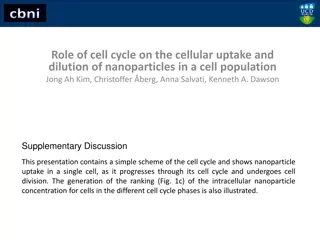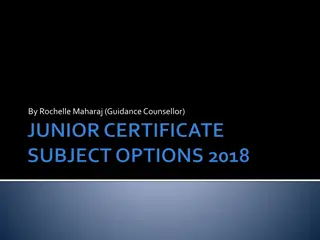Insights into the New Junior Cycle: Key Changes & SPHE Overview
Delve into the significant changes in the Junior Cycle education system, including a focus on the new SPHE for Wellbeing series. Explore topics like course overview, assessment, and teaching strategies, with in-depth coverage of the four key strands. Gain valuable advice from an experienced educator on navigating the evolving curriculum landscape.
Uploaded on May 13, 2024 | 2 Views
Download Presentation

Please find below an Image/Link to download the presentation.
The content on the website is provided AS IS for your information and personal use only. It may not be sold, licensed, or shared on other websites without obtaining consent from the author.If you encounter any issues during the download, it is possible that the publisher has removed the file from their server.
You are allowed to download the files provided on this website for personal or commercial use, subject to the condition that they are used lawfully. All files are the property of their respective owners.
The content on the website is provided AS IS for your information and personal use only. It may not be sold, licensed, or shared on other websites without obtaining consent from the author.
E N D
Presentation Transcript
Exploring Key Changes to the New Junior Cycle
Welcome! Running order for this evening's webinar: 1. Presentation with Stephanie 2. Q&A session
Our new SPHE for Wellbeing series Check out the books, planning and other digital resources on Folens.ie
Topics covered this evening 1. Introduction 2. New course overview 3. Assessment 4. Key Features of the SPHE for Wellbeing Series 5. My Advice on Teaching the New Course 6. Q&A
About Me Teaching for almost 20 years Wrote the first SPHE book in Ireland in 2007 Parent
New SPHE Specification Students starting first year in September 2023 should be studying the 2023 specification. Tool kit and additional guidance for teachers on specific learning outcomes published in November- more to come Resources for teaching and learning in SPHE | Curriculum Online Oide- 'Coming Soon'.
Course Overview Designed for 100 hours of student engagement Learning outcomes do not have to be covered in sequential order All learning outcomes do not have to be covered in full each year
The Four Strands of the new SPHE Specification Strand 1: Understanding Myself and Others Strand 2: Making Healthy Choices Strand 3: Strand 3: Relationships and Sexuality Strand 4: Emotional Wellbeing Full List of Learning Outcomes
Strand 1: Understanding Myself and Others Self-awareness Self-esteem Healthy relationships Self-management
Strand 2: Making Healthy Choices Making healthy choices to support their wellbeing. Accessing reliable information Decision making and influences
Strand 3: Relationships and Sexuality Relationships- family relationships, friendships, romantic Sexuality Potential sexual relationships in the future
Strand 4: Emotional Wellbeing Nurturing emotional wellbeing Positive mental health Problem solving and coping skills How they can support themselves and others Where/how to find support, if needed.
Assessment The focus of assessment is on allowing students to demonstrate the knowledge, skills and dispositions they have gained through their engagement in learning in SPHE. Should take place in 2nd or 3rd year
4. Key Features of SPHE for Wellbeing Series
Lesson features Book is divided into 4 strands Relevant learning intentions, learning outcome numbers, key words & wellbeing indicators listed at the start of each lesson Book 1 and 2
Layout Short reflection at the end of each lesson and strand reflection at the end of each strand
Student Activities A variety of individual, pair, group and class activities Additional resources, videos and activities on Folens Hive
Powerpoints Lesson summary/highlights Useful for students with AEN Additional resources, links and information
Animations Additional animations available on FolensHive to support learning and enhance lessons Useful to look back on in 2nd and 3rd year and for stimulating class discussion
Assessment More detailed text and links to information with suggestions for CBA /Assessment at the end of each strand
Teachers Guide Concise Word version can be downloaded and edited to suit your school Hyperlinks to relevant documents and resources Links to additional resources
Teachers Guide Download the Sample SPHE Policy Word document and edit to suit your school
Teachers Guide Download the Units of Learning which are aligned with the book and edit to suit your school Al online and can be downloaded and edited
Approach to Teaching RSE Information is presented in a non-judgemental, age appropriate way (LO 3.9 and 3.5 are not covered in First Year but are covered in Second and Third Year at an age-appropriate level.) Emphasis on the importance of giving and receiving consent Gender identity - acknowledges that while most people s gender identity matches their sex registered at birth, this is not the case for everyone and gender identity is just one part of sexuality
Approach to Teaching about Food
My perception of main changes compared to 2016 Specification More Focus on Consent Online Safety (Coco's Law, pornography) Accessing Reliable Information Resilience Emotional & Social aspects of sex Vaping Overall mental health & wellbeing All aspects of sexuality Seeking help
My perception of main changes compared to 2016 Specification Less Focus on Pregnancy Birth Reproduction Grief Separation Repetition Specific Mental Health Illnesses
Before Teaching Prepare well for more sensitive topics (see teachers guide & Toolkit) Be familiar with the glossary and stick to it (e.g. intersex) Videos on PDST (2016) Avail of any available training asap Be aware of school policies (see teachers guide) Be involved in updating the school SPHE policy (se teachers guide) If in doubt defer Use anonymous questioning in advance
Parents & SPHE Advice on communicating with parents about SPHE and RSE In the event of not reaching a shared understanding of the value of SPHE, parents/guardians have a right to request that their child opt out of SPHE (or parts of it), as is their right with any aspect of the curriculum.
Your local Folens educational consultant Available for meetings at a time that suits you Support you and your classroom needs Support for the upcoming book scheme
